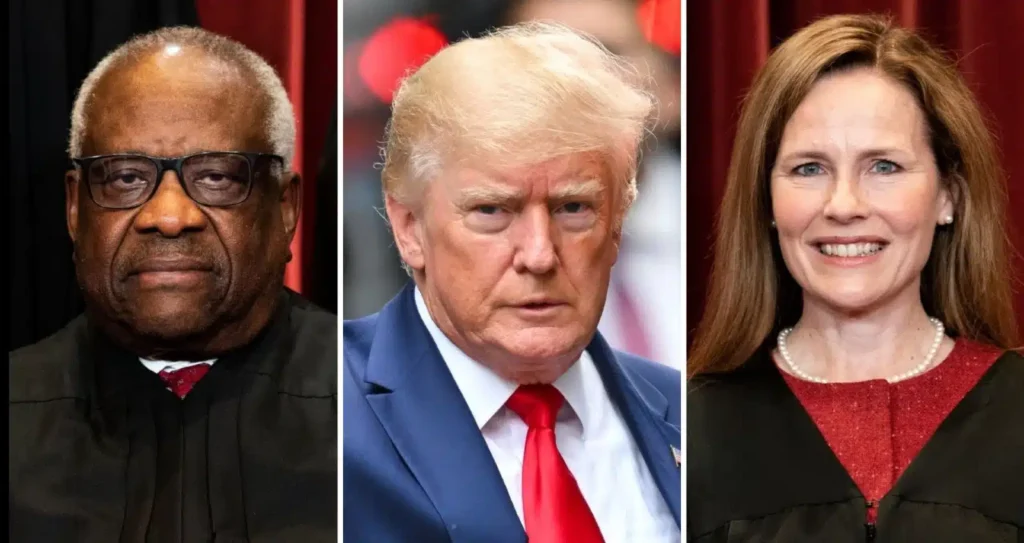On Friday, the Trump administration asked the Supreme Court to review a restraining order that temporarily prevents it from invoking an 18th-century wartime immigration law to immediately deport Venezuelan nationals, including alleged members of the Tren de Aragua gang, from U.S. territory. In the filing, lawyers for the Trump administration said that the lower court’s orders have “rebuffed” Trump’s immigration agenda, including its ability “to protect the Nation against foreign terrorist organizations and risk debilitating effects for delicate foreign negotiations.”
The request for Supreme Court intervention comes just after the D.C. Circuit Court of Appeals voted 2-1 on Wednesday to uphold a lower court’s decision that temporarily barred the administration from using the 1798 Alien Enemies Act to immediately deport Venezuelan nationals. The ruling paused the Trump administration’s use of the law for 14 days to allow the judge time to review the merits of the case. The Trump administration had vowed it would appeal the circuit court decision the Supreme Court for further review, Fox News noted.
In their Supreme Court filing, U.S. Acting Solicitor General Sarah Harris argued that the lower court’s “flawed” orders “threaten the government’s sensitive negotiations with foreign powers,” and risk “serious and perhaps irreparable harm if not immediately reviewed” by the nation’s highest court. At the very least, the Trump administration argued that the Supreme Court should issue an administrative stay, allowing them to continue using the Alien Enemies Act to deport Venezuelan nationals while the court reviews the government’s orders.
They also lambasted the appeals court’s decision issued on Wednesday. Writing for the 2-1 majority, U.S. Circuit Court Judges Karen Henderson, a Bush appointee, and Patricia Millett, an Obama appointee, emphasized concerns over due process violations and highlighted the immediate, irreparable harm cited by the plaintiffs. Allowing the president to continue using the law in the near-term “risks exiling plaintiffs to a land that is not their country of origin,” Henderson said in a concurring opinion siding with the lower court judge.
“The equities favor the plaintiffs,” Henderson said. “And the district court entered the TROs for a quintessentially valid purpose: to protect its remedial authority long enough to consider the parties’ arguments.” For her part, Millett wrote that siding with the Trump administration would “moot the Plaintiffs’ claims by immediately removing them beyond the reach of their lawyers or the court.”
Lawyers for the Trump administration leveraged the Supreme Court filing to criticize the increasing use of temporary restraining orders and injunctions that block key policies, labeling the lower court’s ruling as part of a “rule-by-TRO” trend. Harris argued that this tactic has become so prevalent that it endangers the fundamental functions of the Executive Branch. “In the two months since Inauguration Day, district courts have issued more than 40 injunctions or TROs against the Executive Branch, they noted in the filing,” Fox added.



